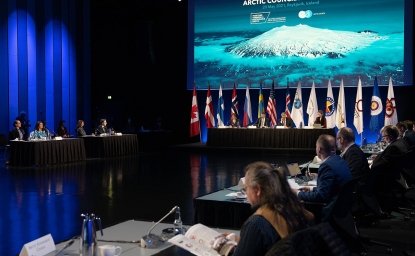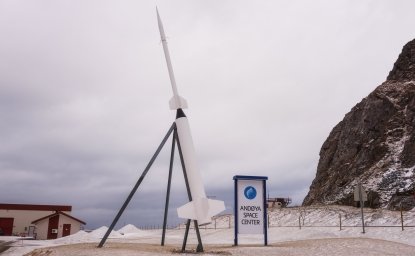Washington, D.C.—David N. Biette has been appointed Director of the Wilson Center’s new Polar Initiative. The Polar Initiative will examine the geopolitical, human, and economic challenges of the Polar Regions, opening new lines of inquiry while coordinating efforts of other Center programs. Biette will also serve as Senior Advisor to the Center’s Canada Institute.
“As founding Director of the Wilson Center’s Canada Institute, David Biette is a recognized specialist in the Polar Regions and his track record makes him the ideal leader for this new Initiative,” said Jane Harman, Director, President, and CEO of the Wilson Center. “David will bring much needed global attention to these critical issues, especially as the United States assumes chairmanship of the Arctic Council, a high-level intergovernmental forum that addresses issues faced by the Arctic states and the indigenous peoples of the Arctic.”
“Building on his success establishing the Canada Institute as the premiere venue in the United States for promoting an understanding of Canada and U.S.-Canadian relations, David’s expertise, entrepreneurialism, and multidisciplinary outlook are ideally aligned to lead this effort, which will explore the integral importance of the Polar Regions to the world,” said Blair Ruble, Vice President for Programs for the Wilson Center.
David Biette has been Director of the Wilson Center’s Canada Institute since 2001, during which time he has established the Canada Institute as a highly respected and sought-out forum to discuss crucial issues concerning the bilateral Canada-United States relationship, and as a platform for preeminent political and intellectual leaders, including Canada’s Prime Minister Stephen Harper, cabinet members from the United States and Canada, and leading scholars on bilateral topics.
“It has been a tremendous honor to have had the opportunity to form the Canada Institute,” said Biette. “And I am delighted to be able to bring the Wilson Center’s nonpartisan analysis to the wide variety of timely and critical questions that face us in the Arctic and Antarctic.”
Prior to joining the Wilson Center, he served as Executive Director of the Association for Canadian Studies in the United States and as Political, Economic, and Public Affairs Officer at the Consulate General of Canada in New York City where he was the principal lead on energy, environment, and political issues. He has written extensively on U.S.-Canada relations and is co-editor of Canada and the United States: Differences that Count, which appeared in a new fourth edition in 2014.
Notes to editors:
1. The Wilson Center provides a strictly nonpartisan space for the worlds of policymaking and scholarship to interact. By conducting relevant and timely research and promoting dialogue from all perspectives, it works to address the critical current and emerging challenges confronting the United States and the world.
2. The Wilson Center’s Canada Institute was founded in 2001 to increase awareness and knowledge about Canada and Canada-U.S. relations among U.S. policymakers and opinion leaders.
3. The Polar Initiative is a multi-program effort to coordinate activity and encourage research and programmatic activity on Arctic and Antarctic issues, including the geopolitical, human, and environmental challenges of the Polar Regions.





